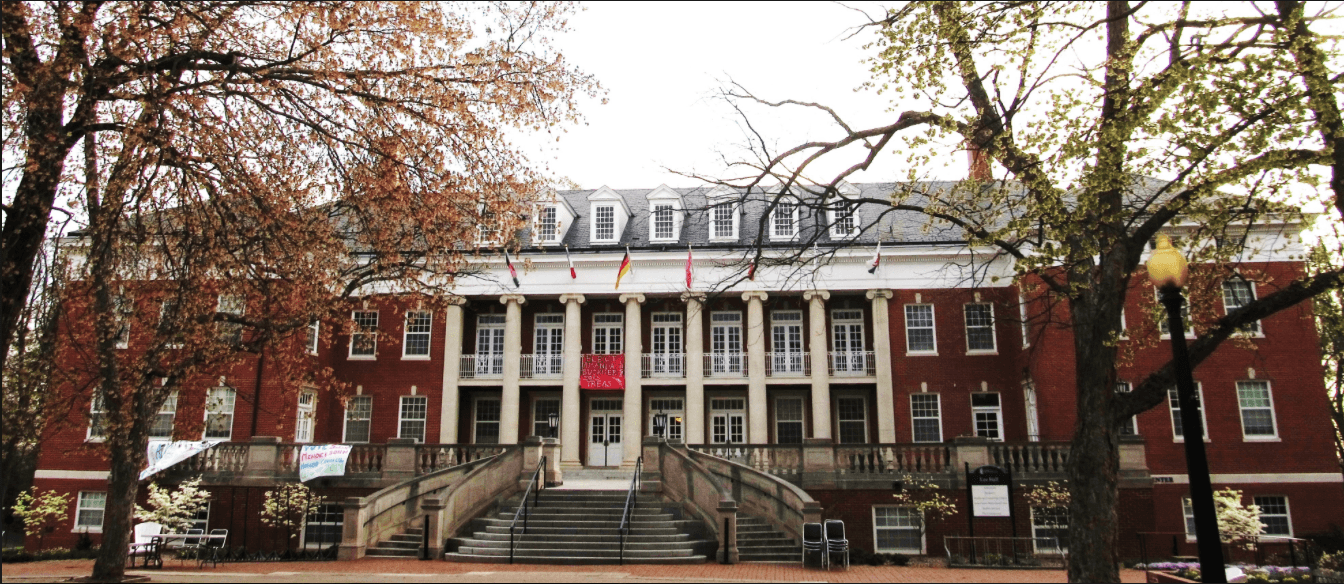UMW Board of Visitors vote unanimously on 2019-20 tuition, fees and budget
4 min read
UMW.edu
GRACE WINFIELD
Associate Editor
The University of Mary Washington Board of Visitors voted unanimously April 13 to freeze in-state tuition rates for the 2019-20 academic year. Out-of-state students’ tuition will increase a few percentage points.
These “minimal cost increases,” as quoted by the University, are reported to be a part of Paino’s proposal in their“sustained effort to control costs for students.”
The budget included a 0 percent increase for Virginia students living on-campus, and also included a 0 percent increase for all meal plans.
“We recommended 0 percent increase for on-campus housing and all meal plans because too much of the revenue from housing and dining was going toward the cost of operating other auxiliary enterprises such as student clubs, student events, counseling, the health center, fitness center, intramurals, and athletics,” said President Troy Paino. He continued, “These activities should be paid for by the auxiliary fee, so instead of increasing the cost of housing and meal plans, we increased the auxiliary fee by over $500 per full-time student.” This includes both on-campus and off-campus students.
Several students have taken the stance that the application of an increase in cost to off-campus and commuter students in particular, is unfair.
“I don’t know why I need to pay the extra fee. As a commuter student, I don’t spend the same amount of time on campus as residential students. It just seems unfair, and kind of strategic on the school’s part,” said junior psychology major Robin Covington. “I am happy to know that any increase in tuition I have to pay isn’t going toward meal plans or housing, considering I live off-campus and I don’t have a meal plan.”
Those who are living in residential areas owned by the UMW Foundation, Eagle Landing and the University Apartments, will experience an increase. The buildings are funded through a loan that has a built-in escalator. Students living in Eagle Landing will experience a 2 percent increase, and the University Apartments on William Street will experience a 5 percent increase.
All fees taken into consideration, an in-state, full time student will seen an overall tuition increase of $556, or 2.4 percent. An out-of-state student’s tuition, room and board annual increase will be $1,048, or 2.7 percent.
President Troy Paino’s proposal is set to “address the increasing cost of serving students primarily through budget reductions and reallocations,” as reported by UMW news. Those cuts and allocations, according to President Paino and the BOV, vary in correlation to campus and student needs.
One priority is compensation. Faculty will get a 3 percent across-the-board raise while classified staff will get a 2.75 percent increase. They also plan to invest in a 2.25 percent merit pool for staff.
Student financial aid is a concern as well. Paino said that they are investing an additional $2.1 million in need-based and merit-based institutional aid for students. “Due to this increased investment in moderating the cost of attendance for students, UMW will be distributing over $17 million in student financial aid next year,” said Paino. This aid includes institutional aid ($9.6 million), state and federal aid, and scholarships from the University’s endowment.
The third area of priority is residence hall renovation. “After the Willard Hall renovation is complete, we will begin the renovation of Virginia Hall, UMW’s second oldest residence hall. In order to pay for this renovation, we are investing an additional $1 million into a renovation pool.”
“We made these changes to promote transparency in how the university uses students’ fees while emphasizing good stewardship over those resources. In total, we are only projecting a .4% increase in next year’s revenue. Despite that modest growth, we were able to invest in [the] three strategic priorities,” said Paino.
“In order to make these investments with only modest increase in revenues, we made about $2.5 million in budget reductions. Those reductions cut across the University (academic affairs, student affairs, Advancement and University Relations, administration, and facilities).”
Paino continued, “While we did not lay off a single employee, last fall we froze several open positions in anticipation of budgetary reallocations in Fiscal Year 20,” said Paino. “Strategically deciding which positions not to fill saved the University approximately $1.6 million.”
The recent tuition decision comes after years of annual tuition increases, with the total exceeding 25 percent just since 2014.
For the current 2018-19 academic year, almost all UMW students saw over a 4 percent tuition rise. The tuition of full-time students from Virginia living on campus increased 4.3 percent, or $526. Those paid $23,384 per academic year, including tuition, fees, room and board. The tuition of full-time, out-of-state students living on campus increased 4.4 percent, or $1,214, and paid $39,318.
Stacie Gordon, state advocacy manager for Partners for College Affordability and Public Trust, a nonprofit dedicated to improving the cost and transparency of higher education, said UMW’s tuition freeze is a “big deal,” and is uncommon amongst the tuition hikes universities have implemented in recent years.
“In offering public institutions over $50 million in new state funding to hold the line on tuition, Virginia lawmakers have created an opportunity to provide students with some much needed financial relief. By recognizing this opportunity and voting to freeze tuition, the University of Mary Washington has taken a step towards increasing college affordability for Virginia families,” said Gordon, as reported in the Free Lance-Star.


